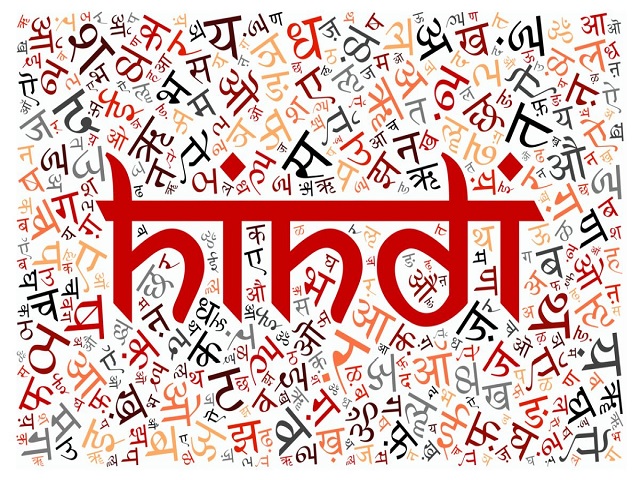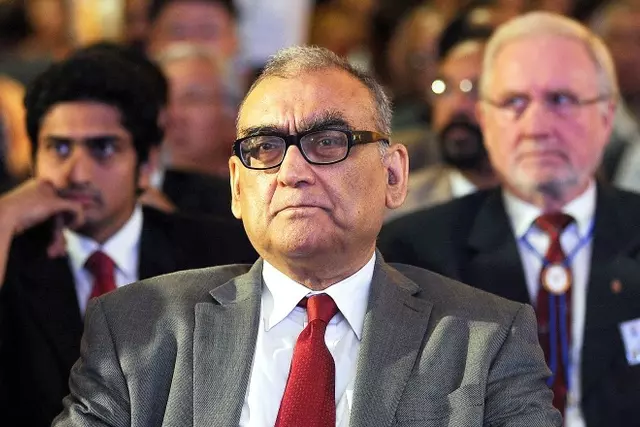I know this article will upset many Hindi protagonists, but that does not matter. I am not a popularity or publicity seeker ( whatever some people may think ), and I often say things which make me very unpopular. I say things which I believe to be true, whether that pleases people or hurts them.
The truth is that Hindi is not the common man’s language in India, not even in the so called Hindi speaking belt. The common man’s language is Hindustani ( also called khadiboli ).
Let me illustrate the difference between Hindi and Hindustani.
In Hindustani we say ‘ udhar dekhiye ‘ ( look there). In Hindi we say ‘ udhar avalokan keejiye ‘. The common man would never say ‘ udhar avalokan keejiye’.
Hindi is an artificially created language, created as part of the British divide and rule policy of propagating the false idea that Hindi is the language of Hindus and Urdu is the language of Muslims.
In fact till 1947 Urdu was the common language of all educated people, Hindus, Muslims, Sikhs etc in large parts of India. It was after 1947 when India was partitioned and Pakistan was created as an Islamic state that an onslaught on Urdu was launched by bigots who propagated the false idea that Urdu was a foreign language and a language of Muslims alone.
As part of this policy a vicious campaign was launched by the bigots to hatefully remove Persian and Arabic words which had come into Hindustani and had become of common usage and replace them with Sanskrit words. For instance, ‘zila’ ( district ) was replaced by ‘janpad’, ‘kaafi’ was replaced by ‘paryapt’, ‘zyaada’ was replaced by ‘adhik’, ‘mujrim’ ( accused ) was replaced by ‘abhiyukt’, etc. Hundreds, if not thousands, of such examples can be given to show that Persian words which were in common usage in Hindustani were selectively sorted out and sought to be substituted by Sanskrit words, a process which almost resulted in genocide for Urdu.
Once when I was a judge in Allahabad High Court a lawyer who would always argue in Hindi presented a petition before me titled ‘ Pratibhu Avedan Patra ‘. I asked the lawyer what ‘Pratibhu’ meant. He said it meant bail. I told him he should have called it bail or ‘zamaanat’ which everybody understood, instead of calling it Pratibhu which no one understands.
In Court it was sometimes difficult to understand the Hindi used in govt notifications, as they were often in ‘klisht’ ( highly Sanskritised ) language. Also, some Hindi books use such klisht language it is difficult to understand what is being said,
It is a mistake to think a language becomes weaker by adopting foreign words. In fact it becomes stronger. Thus, English has become stronger by adopting words from not only European languages, but also from Arabic, Persian, Hindustani etc. So it was silly to remove Persian or Arabic words which had come into common usage from Hindustani
I will conclude by saying that modern Hindi poetry is, in my opinion, no match to Urdu poetry. Consider the Urdu sentence ( in Bismil’s song ) ‘ sar faroshi ki tamanna ab hamaare dil mein hai ‘. In Hindi it translates ‘ Sheesh katwaane ki ichcha ab hamaare hriday mein hai ‘. Which one would revolutionaries like to sing ?
Or consider Faiz’ sentence ‘ Bol ki lab Azad hain tere, bol zubaan ab tak teri hai ‘. Would one prefer to it the Hindi version ‘ Uchchaaran karo munh swatantra hai tumhaara ‘ ? Hindi does not have the ‘dum’ ( power ) and sophistication which Urdu has

